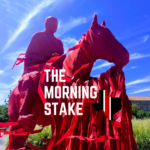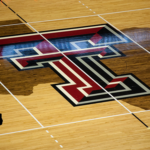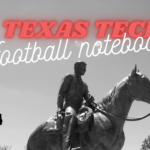 Lubbock In The Loop. Check out Lubbock In The Loop for a list of Lubbock restaurants that offer curbside delivery. Lubbock In The Loop. Check out Lubbock In The Loop for a list of Lubbock restaurants that offer curbside delivery. |
 Well, that went really well. Better than I ever expected and I would like to tell you that I’m surprised, but then I’d be underestimating all of you. Flattered and honored. Because of your outpouring, I told you yesterday, that I’d keep one-third to pay for expenses and now I’m lowering that percentage so that I’ll retain to one-fourth for myself and three-fourths to the staff. I’ll keep this going for the rest of the week and if you can give, that’s great, if you can’t then that’s absolutely okay too. I’ll still be here regardless.
Well, that went really well. Better than I ever expected and I would like to tell you that I’m surprised, but then I’d be underestimating all of you. Flattered and honored. Because of your outpouring, I told you yesterday, that I’d keep one-third to pay for expenses and now I’m lowering that percentage so that I’ll retain to one-fourth for myself and three-fourths to the staff. I’ll keep this going for the rest of the week and if you can give, that’s great, if you can’t then that’s absolutely okay too. I’ll still be here regardless.
You all have made me super happy and thank you.
![]()
J.B. Whizzer White was the oldest living Texas Tech letterwinner and passed away on April 27th at the age of 99:
The Red Raiders found success in his three varsity seasons, going 53-19 overall with a runner-up finish in the Border Conference standings in 1939. Additionally, Tech topped the University of Texas, 44-40, in Austin during his 1941 senior season, marking the school’s first victory over the Longhorns in any sport at the time.
White, a U.S. Navy veteran, returned to Lubbock after his time in the military as he owned and operated JB White Erectors, Inc. for years. He was also President of Prestressed Structures, Inc. during his professional career.
White was an active member of the Lubbock golf community as a charter member of Hillcrest Country Club. He was regarded as one of the top area golfers as he qualified for three National Senior Amateur events and two Senior National Open tournaments, including the first Senior Open in 1980.
Rest in peace Whizzer.
This photo was taken in May 2019 when Whizzer came by the office. We are forever grateful for the ways he impacted Texas Tech Athletics.
🔴#KeepTheŦradition⚫️ pic.twitter.com/0J6BZNscN3
— Double T Varsity Club (@DoubleTVarsity) May 4, 2020
![]()
This is really a visual thing, but the people who wrote this story took an entire month to go to Peru and look at their potatoes. You’d think that this is boring, but I honestly had no idea that there were so many potato varieties in Peru and how important to the culture that they are to the culture. Visually, this is a fantastic way to view the the trip. Via Emergence Magazine
![]()
ESPN’s Bill Connelly does a history of the spread offense and there are appearances of all sorts of people, from Kevin Johns (former Texas Tech coordinator), Mike Leach (former Texas Tech head coach), Hal Mumme (inventor of the spread), Rich Rodriguez (was up for the job at Texas Tech), and others. This was a fun read and I think I enjoyed the defense part the best, bright minds figuring out how to stop offenses:
“People always try to take away whatever a team does best,” Heacock said. “Well, the hardest part now is when they’re in these offenses, what are they running the most of? That’s hard to decipher. They’re so based on what you’re doing, and what they do best in one game might not be what they do best in another. I think it used to be, a team lines up, and, ‘Hey, they’re a power team, a tight end run team, an inside zone team.'” And now they’re just designed to do whatever you’re not set up to stop.
Heacock set up his Iowa State defense, then, to show as little as possible. He crafted a unique version of the 3-3-5 defense, with a tight front three and eight players who swarm to the ball. In a way, they do what offenses have long sought out to do — create space for their runners. Their effect is to prevent big plays and force offenses to tolerate going five yards at a time. “I’d never heard of doing this, to be honest,” Heacock said. “We just tried to do what we could do in the conference we were playing in with the guys that we had. But when you look out there on offense, everything looks the same. That’s where you’re trying to get an advantage.”
Other defenses have gone in a different direction. If the spread offense is about getting defenses to declare themselves, declare the thing offenses are least interested in doing. “Someone told me a long time ago,” Diaz said, “one way to take away the triple option is to take away the option. You tell them what you want them to do and then force them to do it.”
![]()
A rule that is long overdue? Via NBC Sports, the NCAA will not require student-athletes to inform their schools each year about any investigations or disciplinary matters in their past:
According to the measure adopted by the NCAA’s board of governors, all athletes must disclose annually whether their conduct has resulted in an investigation, Title IX discipline or criminal conviction for “sexual, interpersonal or other acts of violence.”
Failure to fully disclose that information may result in penalties that include a loss of eligibility, as determined by the school. This applies to current and incoming athletes.
This expansion of the policy will take effect in the 2021-22 school year.
This is a good rule.
![]()
Via AuburnSports’ Nathan King, King transcribes the audio from a podcast that ESPN’s Paul Biancardi had with 2021 player Jonathan Kuminga who says that he’s 50/50 as to whether or not he would reclassify as part of the 2020 class:
“For me, right now, I would say 50-50,” Kuminga said of reclassifying to the 2020 class. “With the way everything is going on right now, I don’t want to put myself in a terrible situation where I don’t know what I’m doing. So I’ve just got to be patient with it, sit down with my family and planning on everything.”
Kuminga, from The Patrick School (Hillside, N.J.), tweeted April 15 that his final five schools would be “coming soon.” He released a top 10 of Auburn, Duke, Florida State, Georgia, Kentucky, Maryland, Memphis, Michigan, Texas Tech and Washington back in November.
![]()
RedRaiderSports’ Ben Golan has his Q&A with incoming freshman defensive back Jonathan Davis.
![]()
Here are some tweets:
Recreated some of our favorite game photos from last season 📸
How’d we do? 😂
🔴#WreckEm⚫️ pic.twitter.com/owTGldil8J
— Texas Tech Soccer (@TexasTechSoccer) May 4, 2020
JUST IN: University of Arkansas planning on starting Razorback football Sept. 5, with practice starting mid July -per Hunter Yurachek on Board of Trustees virtual meeting today pic.twitter.com/w9IhxH4Zi5
— Susan El Khoury (@SusanElKhoury) May 4, 2020








